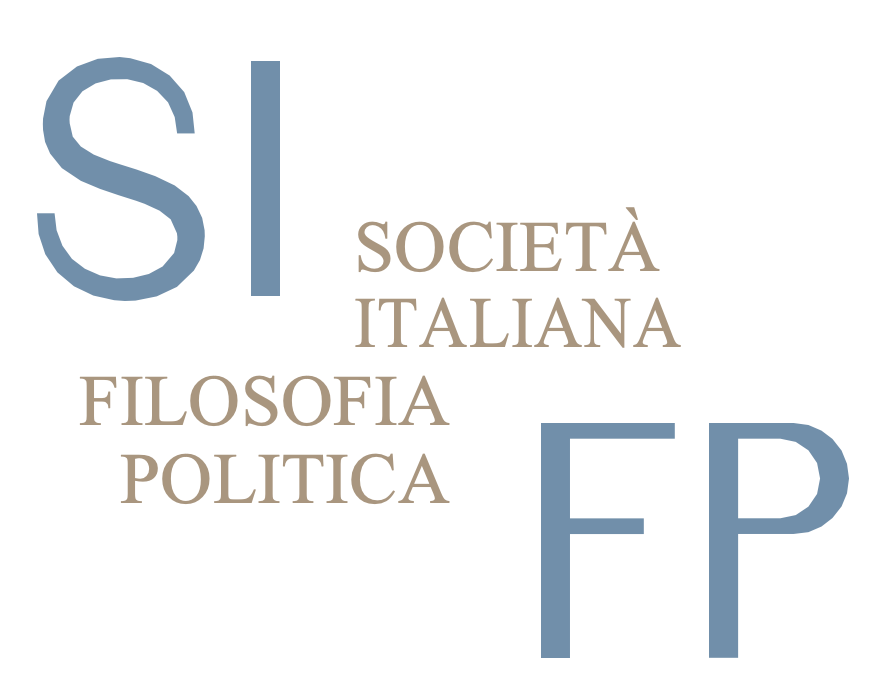Speranza: femminile plurale. La postcritica come politica
La postcritica come politica
DOI:
https://doi.org/10.36253/rifp-2083Keywords:
critique, crisis, affect, possibility, processAbstract
The article aims to analyze the extent to which the recent proposal of a post-critical turn is capable of reconfiguring the current relationship between criticism, crisis, and hope. While today’s critical attitude of thought predominantly takes the form of a diagnosis of the present that ends up confirming its inevitability, the post-critical turn aims to avoid this drift through a different epistemological and affective posture. Throughout the article, I will highlight the difficulties that this proposal encounters when it limits itself to embodying a different ethos towards the critical object that is not aimed at changing its ontological status. My thesis is that only by also embracing a processual ontological vision can post-critique, on the one hand, reopen the horizon of hope as a possibility, and on the other hand, allow theorists to divest the role of the judge and adopt a different epistemological posture, such as that – expressed in the plural feminine form and borrowed from the famous figure of Donna Haraway – of modest witnesses.
Downloads
References
Ahmed, Sara. La promessa della felicità. Trad. it. di A. Popa-Rolando e L. Scarmoncin. Bologna: Luca Sossella Editore, 2023.
Anker, Elisabeth e Rita Felski, eds. Critique and Postcritique. Durham & London: Duke University Press, 2017.
Avramopoulou, Eirini. “Hope as a performative affect: feminist struggles against death and violence.” Subjectivity 10 (2017): 276-93. htpps://doi.org/10.1057/s41286-017-0031-0
Bennett, Jane. Vibrant Matter. A Political Ecology of Things. Durham and London: Duke University Press, 2010.
Best, Stephen e Sharon Marcus. “Surface Reading: An Introduction.” Representations 1, no. 108 (2009): 1-21. https://doi.org/10.1525/rep.2009.108.1.1
Boltanski, Luc. Della critica. Compendio di sociologia dell’emancipazione. Trad. it. di F. Peri. Torino: Rosenberg & Sellier, 2014. https://doi.org/10.4000/books.res.171
Brown, Alfie. Capitalismo & Candy Crush. Trad. it. di M. Bittanti. Roma: Nero, 2019.
Brown, Wendy. Edgework: Critical Essays on Knowledge and Politics. Princeton: Princeton University Press, 2005.
Cavarero, Adriana. Democrazia sorgiva. Note sul pensiero politico di Hannah Arendt. Milano: Raffaello Cortina, 2019.
Chignola, Sandro. “Di che realtà si tratta nel realismo critico? Su cosa, realtà, realismo.” Politica & Società 3 (2021): 355-74.
Clough, Patricia Ticineto e Jean Halley, eds. The affective turn: Theorizing the social. Durham, NC: Duke University Press, 2007.
Cooper, Davina. Utopie quotidiane. Il potere concettuale degli spazi sociali inventivi. Trad. it. di M. Croce. Pisa: ETS, 2016.
Croce, Mariano. “Elogio dell’imprecisione.” Politica & Società 2 (2018): 273-90. https://doi.org/10.4476/91199
Croce, Mariano. Postcritica. Asignificanza, materia, affetti. Macerata: Quodlibet, 2019.
Croce, Mariano. Latour. Irriduzionismo. Attante. Piattezza. Ibridi. Gaia. Roma: Derive Approdi, 2020.
Croce, Mariano e Andrea Salvatore, eds. La postcritica è solo un pretesto. Macerata: Quodlibet, 2023.
Deleuze, Gilles e Félix Guattari. Che cos’è la filosofia? Trad. it. di A. De Lorenzis. Torino: Einaudi, 2002.
Deleuze, Gilles. L’esausto. A cura di G. Bompiani. Roma: Nottetempo, 2015.
De Sutter, Laurent, ed. Postcritique. Paris: PUF, 2019.
Felski, Rita. The Limits of Critique. Chicago: The University of Chicago Press, 2015.
Felski, Rita. Hooked. Art and Attachment. Chicago: Chicago University Press, 2020.
Gentili, Dario. Crisi come arte di governo. Macerata: Quodlibet, 2022.
Guaraldo, Olivia. “Public Happiness. Revisiting an Arendtian Hypothesis.” Philosophy Today 62, no. 2 (2018): 397-418. https://doi.org/10.5840/philtoday201866218
Guaraldo, Olivia. “Postcritica: una genealogia.” Politica & Società, 2 (2018): 163-90. DOI: 10.4476/91194
Gregg, Melissa e Gregory J. Seigworth, eds. The Affect Theory Reader. Durham, NC: Duke University Press, 2010.
Haraway, Donna. Modest_Witness@Second_Millennium. FemaleMan_Meets_OncoMouse. Feminism and Technoscience. New York: Routledge, 2018.
Heidegger, Martin. “La cosa.” In Saggi e discorsi, 109-124. Milano: Mursia, 1991.
Jaeggi, Rahel. Critica delle forme di vita. Trad. it. di M. De Pascale. Milano-Udine: Mimesis, 2021.
Jensen, Casper Bruun. “Experiments in Good Faith and Hopefulness. Toward a Postcritical Social Science.” Common Knowledge 20, no. 2 (2014): 337-62. https://doi.org/10.1215/0961754X-2422980
Koselleck, Reinhart. Crisi. Per un lessico della modernità. Verona: ombre corte, 1982.
Latour, Bruno. Pandora’s Hope: Essays on the Reality of Science Studies. Cambridge and London: Harvard University Press, 1999.
Latour, Bruno. “Why Has Critique Run out of Steam? From Matters of Fact to Matters of Concern.” Critical Inquiry 30, no. 2 (2005): 225-48.
Latour, Bruno. Reassembling the Social. An Introduction to Actor-Network Theory. Oxford: Oxford University Press, 2005.
Latour, Bruno. “Che cos’è iconoclash?” In Teorie dell’immagine. Il dibattito contemporaneo, 287-330. A cura di Andrea Pinotti e Antonio Somaini. Milano: Raffaello Cortina, 2009.
Latour, Bruno. Dingpolitik. Come rendere le cose pubbliche. Postmedia Books, 2011.
Mazzone, Leonard. “Si emancipi chi può? Critica sociale, estetica e politica a partire da Jacques Rancière.” In Mirko Alagna e Leonard Mazzone, Superficialismo radicale. Soggetti, emancipazione e politica. Pisa: ETS, 2021.
Parker, Jay e Joyce Wexler, eds. Joseph Conrad and Postcritique. Politics of Hope, Politics of Fear. London: Palgrave Macmillan, 2021.
Salvatore, Andrea. “I soliti sospetti. Cosa viene dopo la critica.” Politica & Società 2 (2018): 245-258.
Sedgwick, Eve Kosofsky. “Paranoid Reading and Reparative Reading, or, You’re So Paranoid, You Probably Think This Essay Is About You.” In Touching Feeling. Affect, Pedagogy, Performativity, 123-151. Durham & London: Duke University Press, 2003.
Thomas, Yan. Il valore delle cose. Macerata: Quodlibet, 2015.
Thrift, Nigel. “Intensities of feeling: Towards a spatial politics of affect.” Geografiska Annaler: Series B, Human Geography 86, no. 1 (2004): 57-78.
Williams, Raymond. Keywords: A Vocabulary of Culture and Society. New York: Routledge, 2011.
Zournazi, Mary. Tutto sulla speranza. Nuove filosofie per il cambiamento. Trad. it. di A. Arancio, Bergamo: Moretti & Vitali, 2013.
Zuolo, Federico. “Alt-Vax. Il suicidio dello spirito critico.” Gli Stati Generali, 8 settembre 2021. https://www.glistatigenerali.com/filosofia_sanita/alt-vax-il-suicidio-dello-spirito-critico/
Downloads
Published
How to Cite
Issue
Section
License
Copyright (c) 2023 Natascia Tosel

This work is licensed under a Creative Commons Attribution 4.0 International License.







